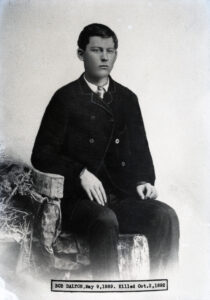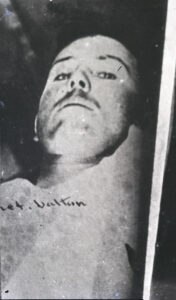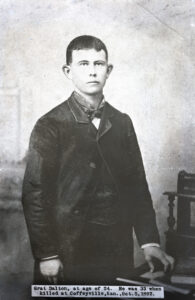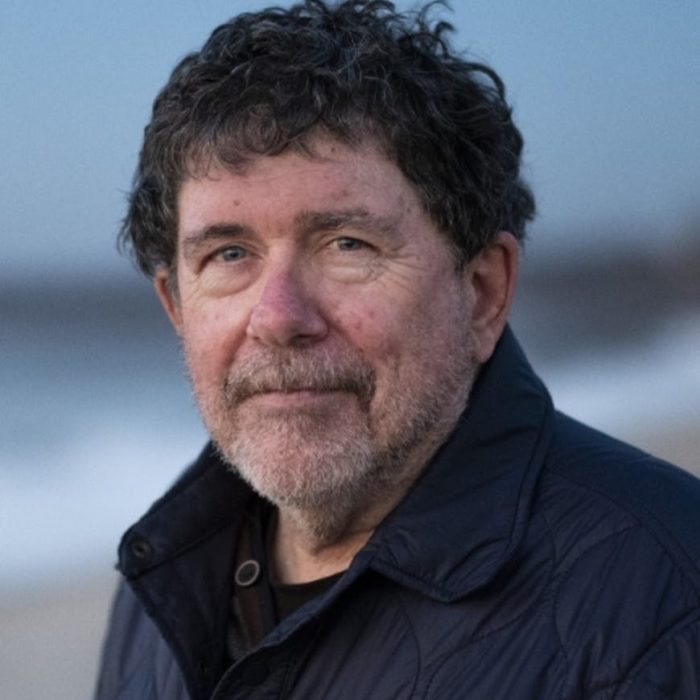by Tom Clavin
The following is an excerpt from The Last Outlaws: The Desperate Final Days of the Dalton Gang, which is to be published on November 7. On October 5, 1892, the notorious Dalton brothers—Bob, Grat, and Emmett—were seeking one last big score by robbing not one but two banks simultaneously in Coffeyville, Kansas. They and two accomplices had the elements of surprise and firepower at first . . . then the scenario began to go south.

For Bob and Emmett Dalton, so far, things were going ahead without a hitch inside the First National Bank. They had corralled four customers to hold as hostages—three who had already been in the bank, and a fourth after he had stepped in a minute later and tried without success to step back out when he spotted the two bandits with Winchesters.
Also, when Bob and Emmett had entered, they at first found two employees. One was Thomas Ayres, a cashier manning a teller’s window, and the other was W.H. Shepard, a teller sitting at a desk near the vault. Leaving Emmett to guard the men who were now hostages, Bob strode down a hall to a private office in the back of the bank. There he found Bert Ayres, a bookkeeper who was the son of the cashier, sitting at his desk. “Get out front,” Bob told him.
He did, Bob prodding him with the rifle, and there the situation became obvious to Ayres, seeing the second armed man and customers looking helpless and frightened. Bob then ordered him into the vault to remove whatever money was in it. When Ayres hesitated, he was persuaded to move fast when the Dalton brothers declared they were about to shoot him. First to go into the sack Bob carried were the contents of the cash drawer and whatever was on the counter.
Next was the money in the safe. This time it was Thomas Ayres, the cashier, who, hoping to divert attention from his son, withdrew its contents and dropped it into the grain sack. To be of further assistance, he informed the thieves that there was some gold in the vault “if they wanted that too.”
“Yes,” Bob told him. “We want every damn cent.”
Ayres readily complied, and after closing the vault, he said that was all there was. Bob was suddenly suspicious of such easy cooperation. Brushing past Ayres, he strode into the vault and yanked the safe door open. Sure enough, there were two more packages of money, totaling $5,000. Once they were in the sack, Bob roughly estimated the First National had yielded at least $20,000.
It could have been more. Bob had picked up a box belonging to a bank customer which contained gold watches. However, he was assured by Ayres and Shepard that the box contained nothing but papers, and he put it down on the counter.
It was time to get while the going was good. To be on the safe side, as Bob and Emmett went out the front door, they were preceded by the four customers and the three bank employees. But there would be no escape that way.

“Look out there at the left,” Emmett said urgently.
From the doorway of Rammel Brothers Drug, George Cubine fired his borrowed Winchester. He was joined by C.S. Cox, an American Express agent, who squeezed the trigger of his revolver.
No one was hit but there was an immediate reaction. Bob and Emmett dashed back into the bank. So did Bert Ayres and Shepard. Thomas Ayres ran away from the bank and right into Isham’s Hardware. After plucking a rifle off the rack and clutching ammunition, the cashier went back outside and took a position with a clear view of the First National.
The other bank employees had made the wrong snap decision. Bert Ayres and Shepard were once again hostages. They were dragged along as the Dalton brothers, with the sack in Bob’s grip, ran through the bank to the back door. The plan to meet up with their brother Grat and his companions in the Condon Bank, Bill Power and Dick Broadwell, and cross the plaza to the alley, where they could make their escape, was immediately scrapped.
Back at the Condon Bank, the thieves had heard the gunshots. Grat realized that the full former grain sack was too heavy to carry and ordered the silver coins taken out. He then stashed what cash he could fit into his coat pockets. Forget the vault time lock, it was time instead to get out of there.
Meanwhile, the by-now-well-armed citizen defenders of Coffeyville had gone out on the tops of buildings and spread to alleys and back lots while others stood boldly out in the street. As they waited for Bob and Emmett to make another appearance, they targeted the Condon Bank. Bullets from pistols, rifles, and shotguns shattered the plate glass windows. There, Power and Broadwell got busy, each firing furiously at the men outside the bank. It would later be estimated that just the citizens behind the barricade in front of Boswell’s fired some 80 shots into the bank.
That firepower was hard to avoid. The customers and bank employees on the floor managed to do so but Bill Power did not. He cried out that he’d been hit and could not use his arm to shoot any longer. Dick Broadwell was not going to just stand there and take it. The plate glass on the southeast door was still intact until he put the tip of his rifle against it and began firing. He was aiming for Parker Williams on the Barndollar awning. He missed, but it dawned on Williams that he would have a longer lifespan if he got off the awning.
As the gunfire became more intense, Bob made his way back to the First National’s front door. Emmett, holding his Winchester under one arm, tied a string around the opening of the money sack. Bob peeked out the door and spotted Charles Gump and his shotgun standing by Isham’s awning post. Bob took aim with his Winchester and fired. The bullet struck Gump on his gun hand and then the gun itself, shattering the shotgun. Several men appeared and helped the wounded man into the shop.
Gump soon had company in the hardware store. An employee, T. Arthur Reynolds, with one of the shop’s rifles, rather rashly stepped out onto the sidewalk and began shooting at the southeast door of the Condon Bank. A bullet sent by one the outlaws found Reynolds’s foot. He too was hauled into Isham’s.

Clearly, going out the front door was a bad idea, so Bob and Emmett ordered Shepard to open the back door of the First National for them, and they headed in that direction. At about the same time, carrying a pistol, Lucius Baldwin, the 23-year-old from the Read Brothers store, ran out the back door of Isham’s into the alley running behind the bank. Bob and Emmett saw him as they stepped out of the First National. They leveled their rifles at him and told him to stop.
The bold Baldwin did not. His pistol held at his side, he continued his approach in the alley. But before he could get off a shot, Bob, holding his rifle from the hip, fired. The bullet hit Baldwin in the left side of his chest and came out the other side.
While the Dalton brothers ran to the north entrance of the alley, where it entered Eighth Street, a couple of men found Baldwin on the ground and they carried him back to Isham’s. The hardware store now contained three bleeding citizens. Two of the men would recover.
A sweating Emmet carried the heavy grain sack as he tried to keep up with his older brother. “You hold the bag,” Bob had told him, “and I’ll do the fighting.” They had to reach the horses. With luck, Grat and the two other gang members were doing the same thing.
But the robbery was far from over. As David Stewart Elliott would report in The Coffeyville Journal, “It was then that the bloody work of the dread desperadoes began.”
Originally published on Tom Clavin’s The Overlook.

Tom Clavin is a #1 New York Times bestselling author and has worked as a newspaper editor, magazine writer, TV and radio commentator, and a reporter for The New York Times. He has received awards from the Society of Professional Journalists, Marine Corps Heritage Foundation, and National Newspaper Association. His books include the bestselling Frontier Lawmen trilogy—Wild Bill, Dodge City, and Tombstone—and Blood and Treasure with Bob Drury. He lives in Sag Harbor, NY.
